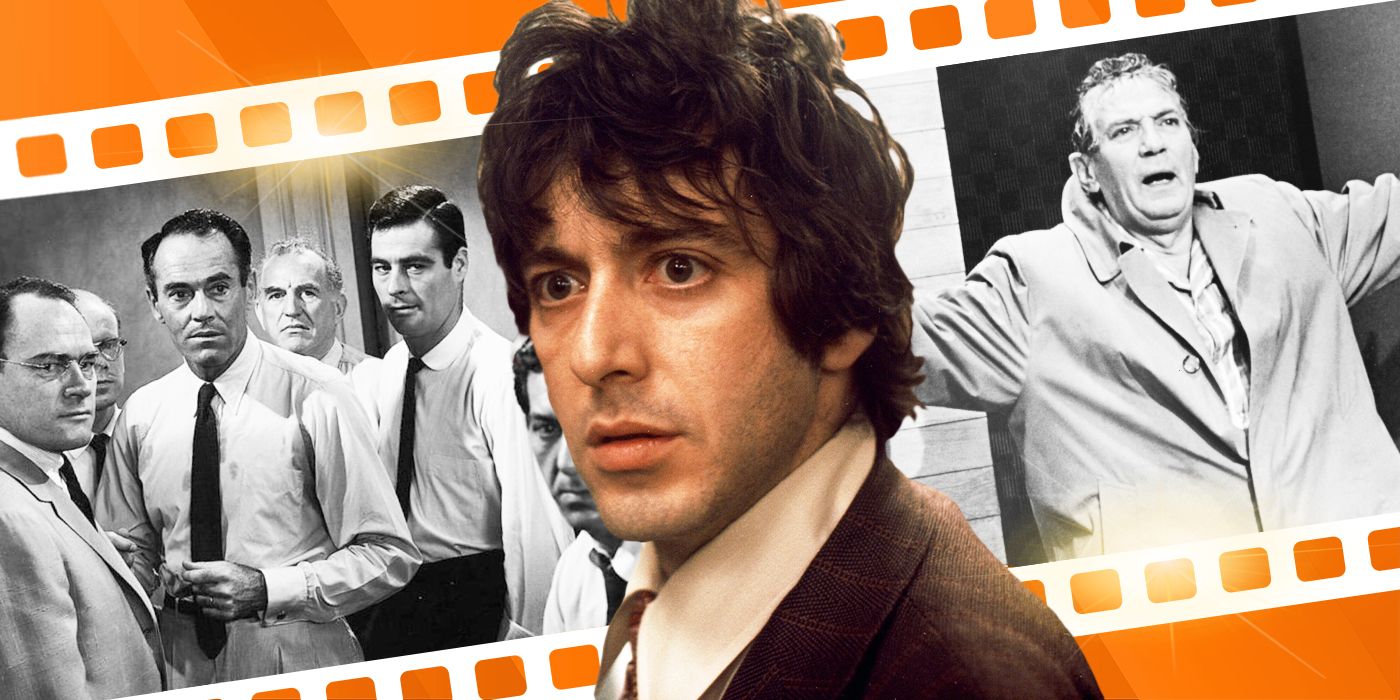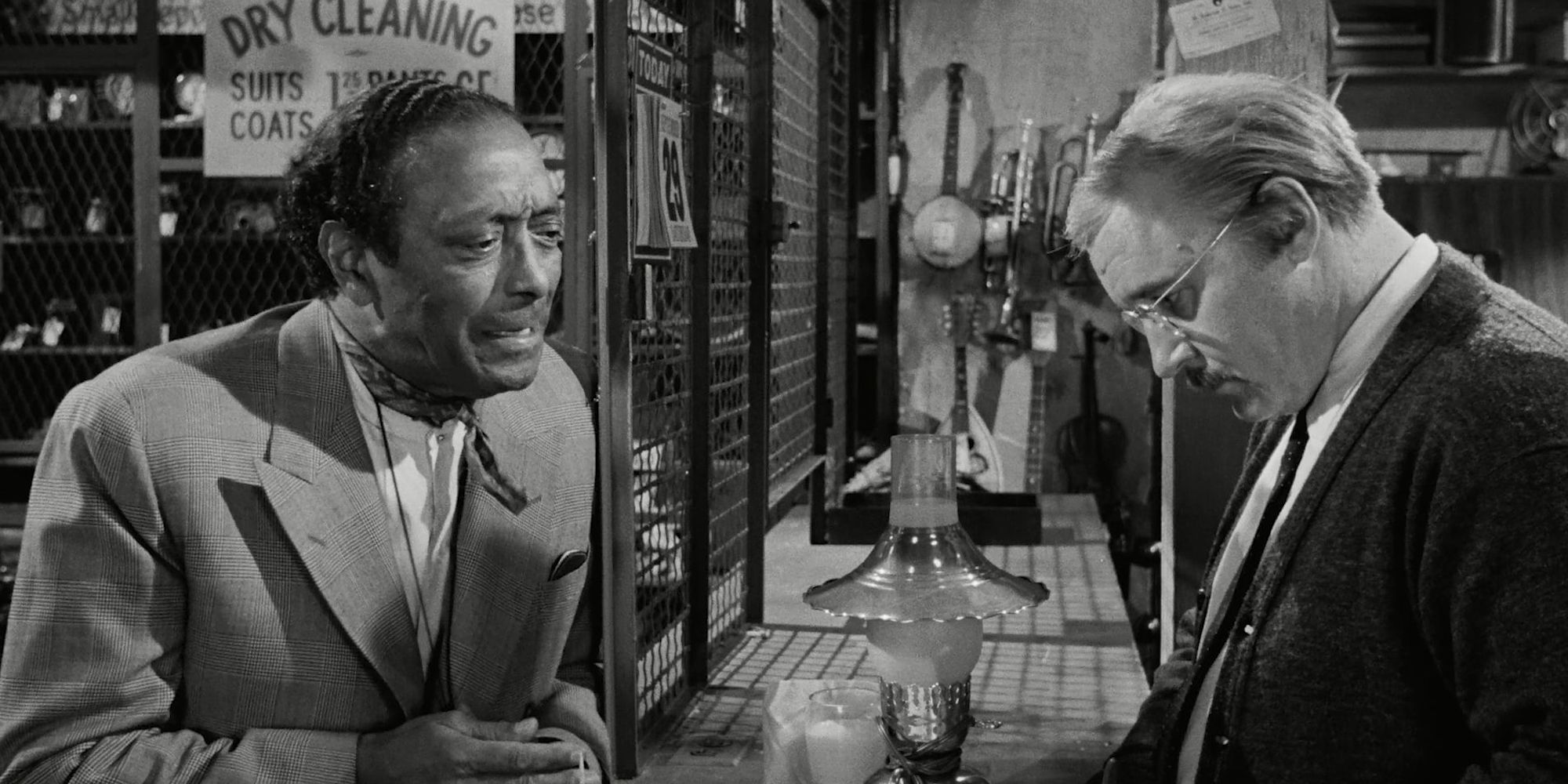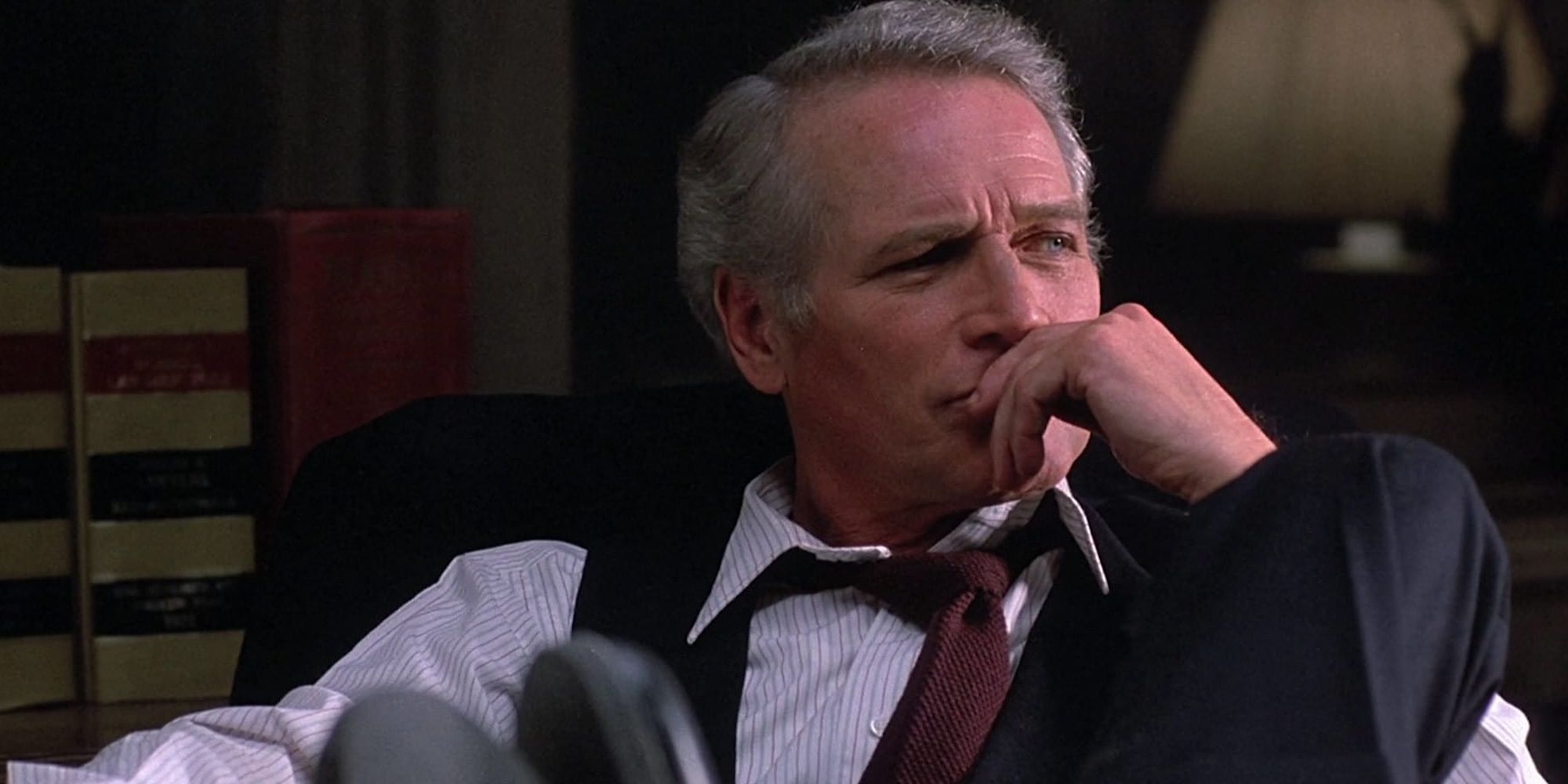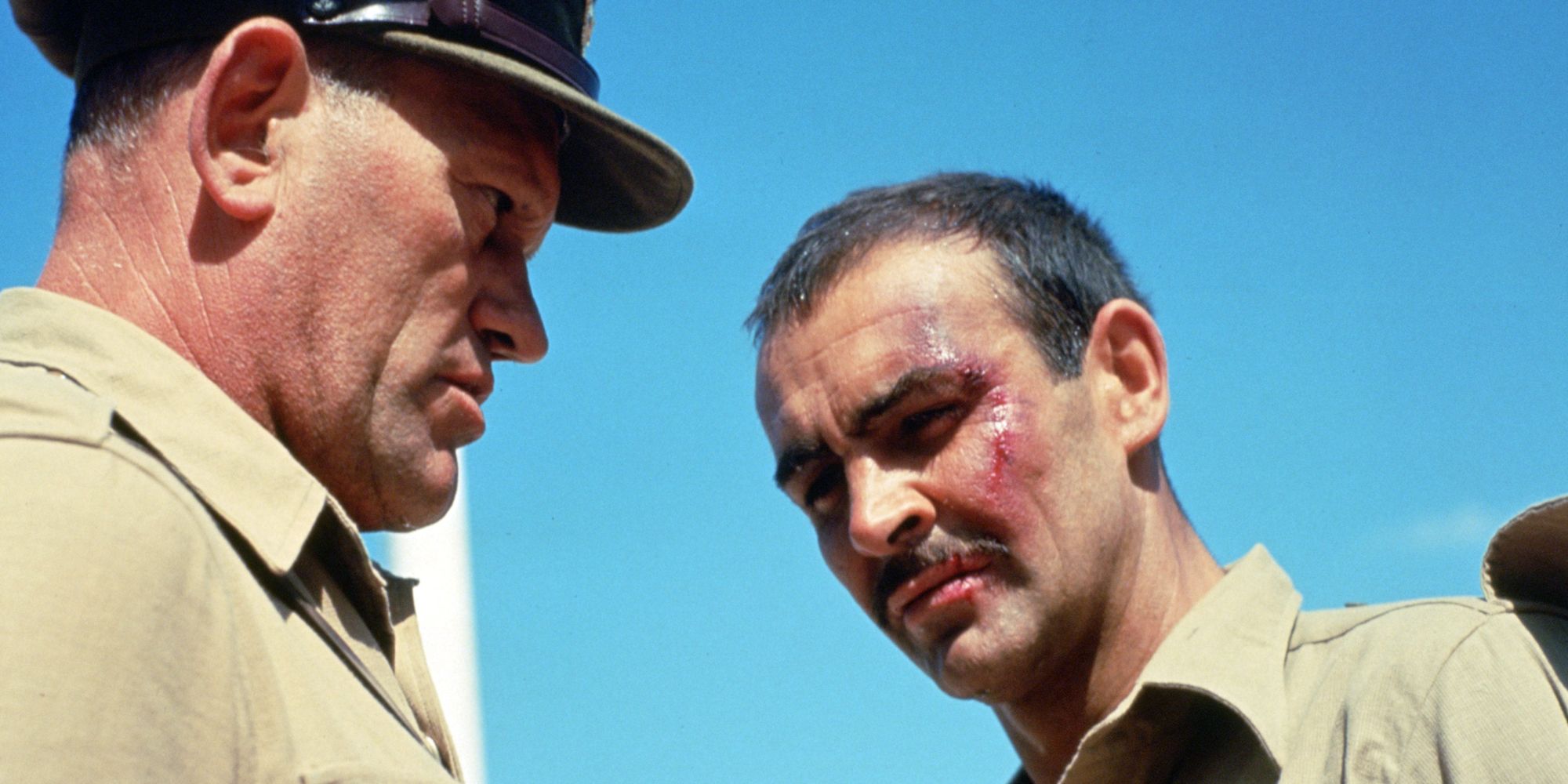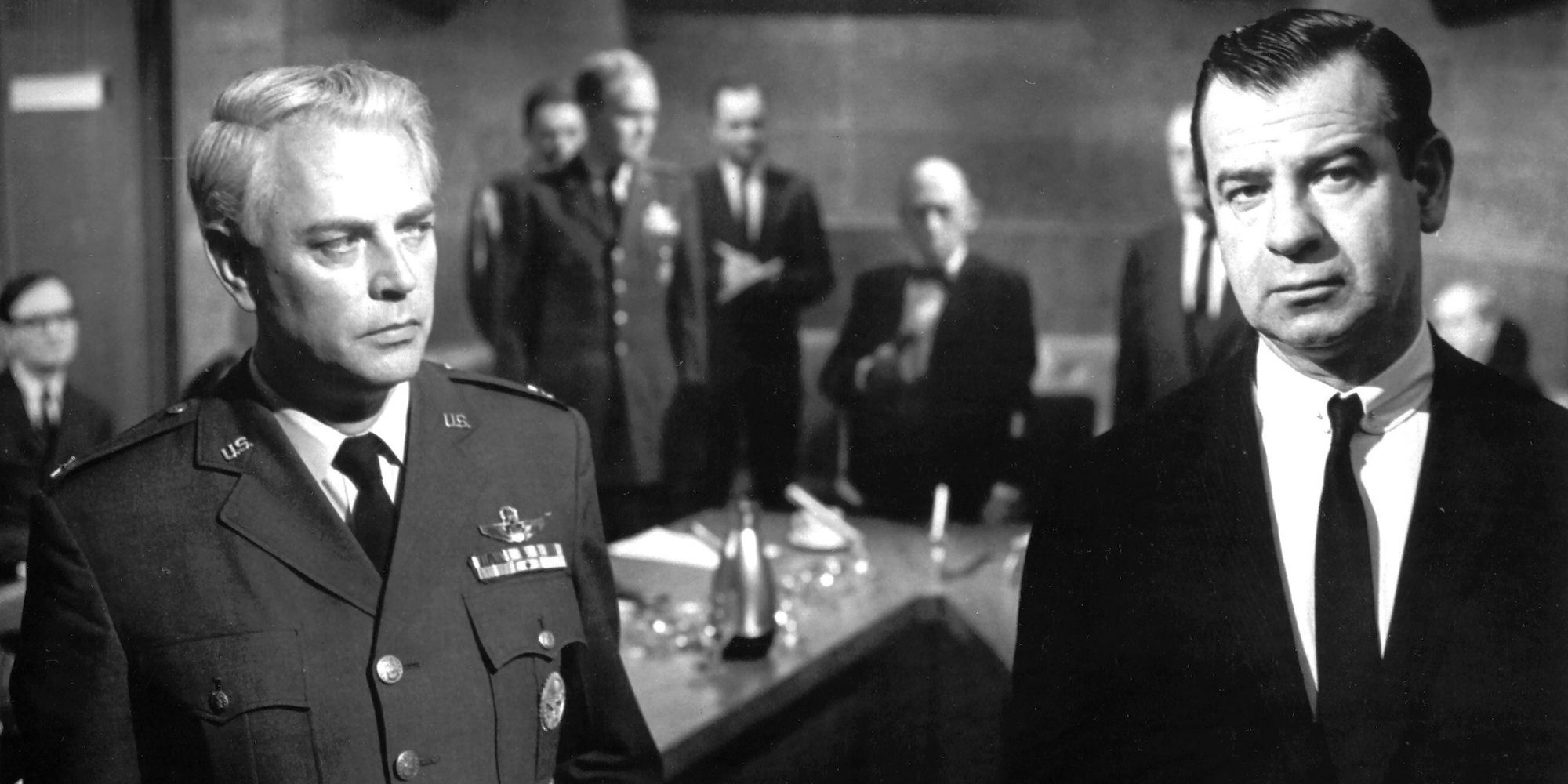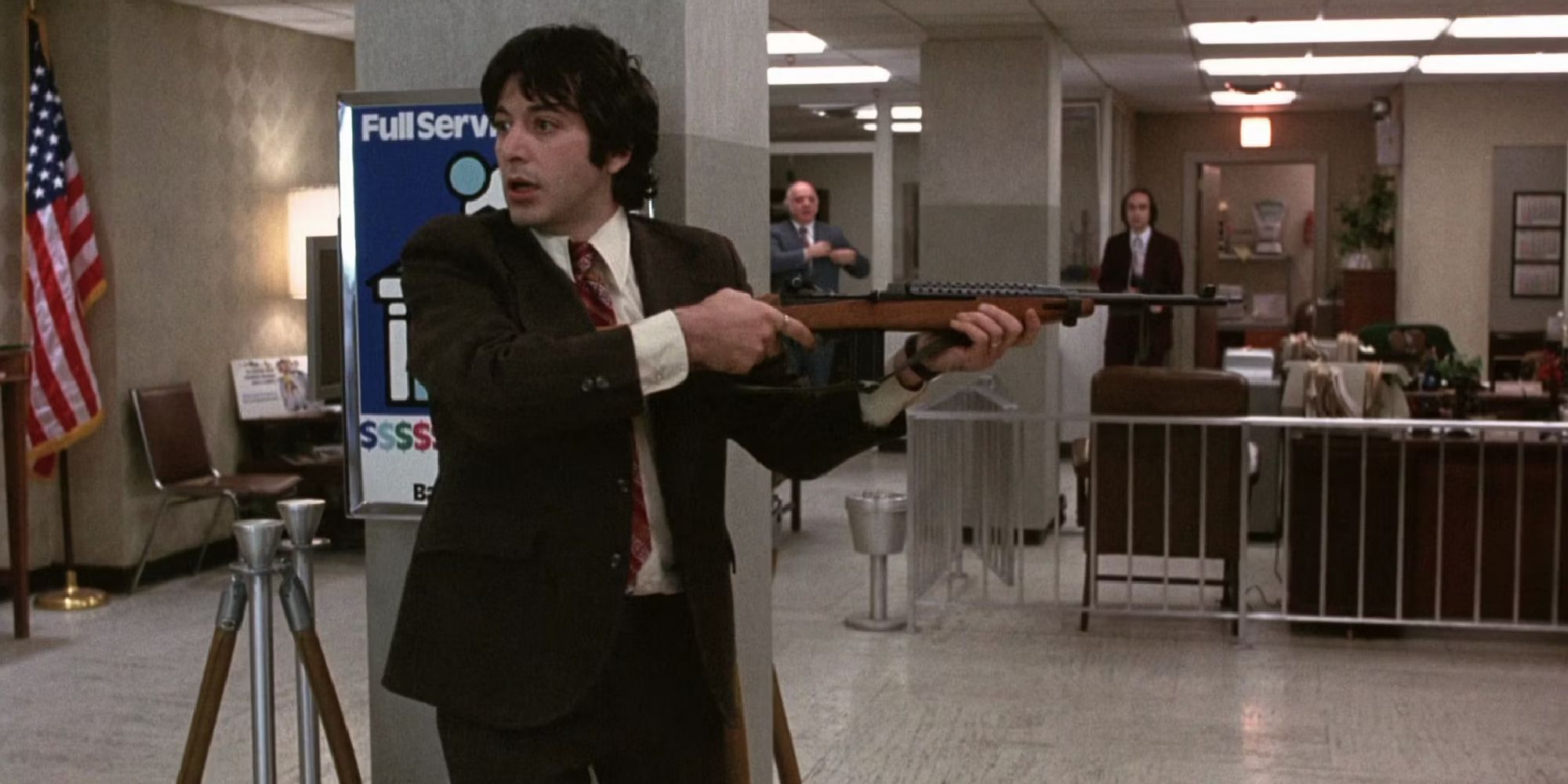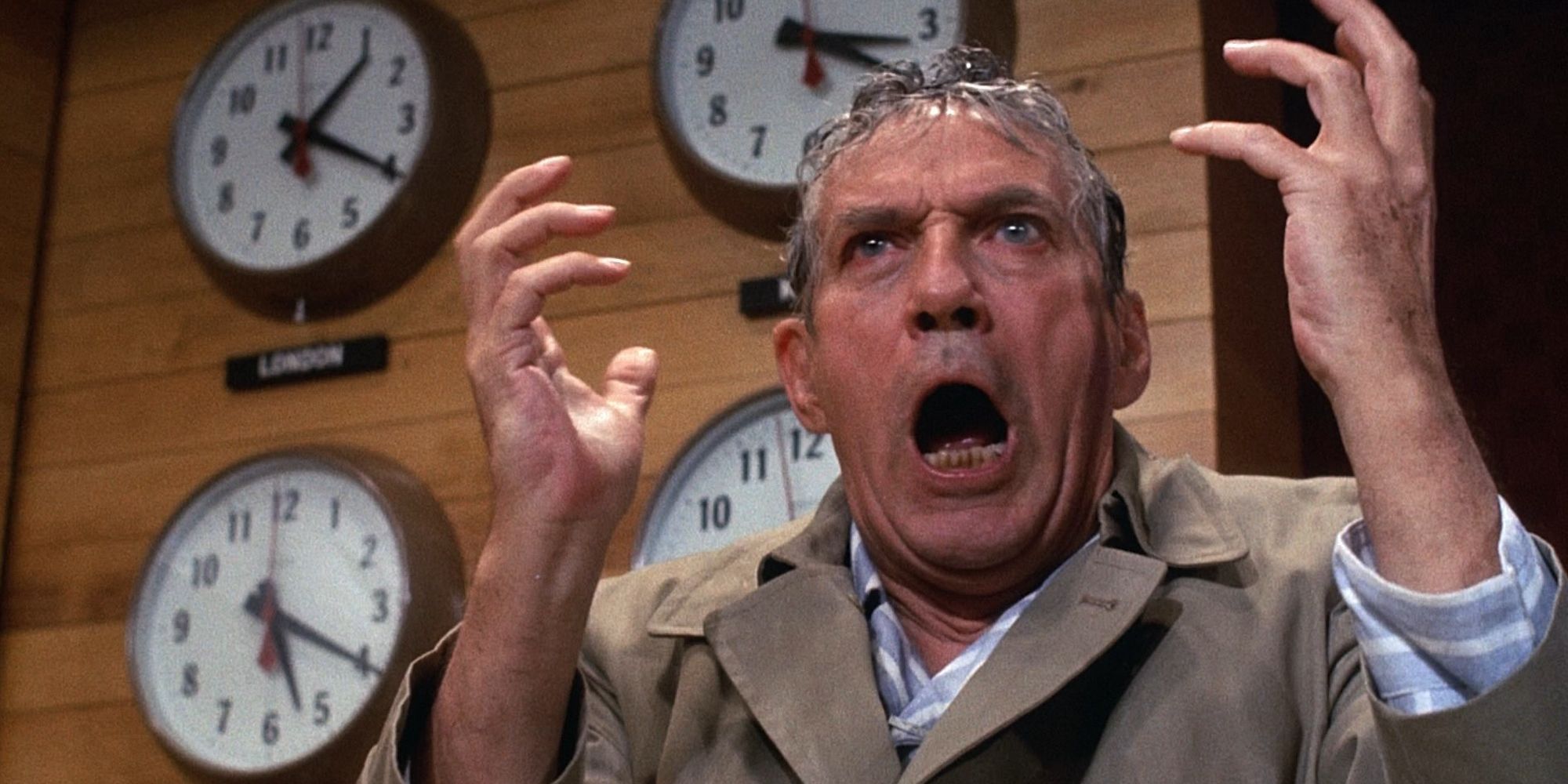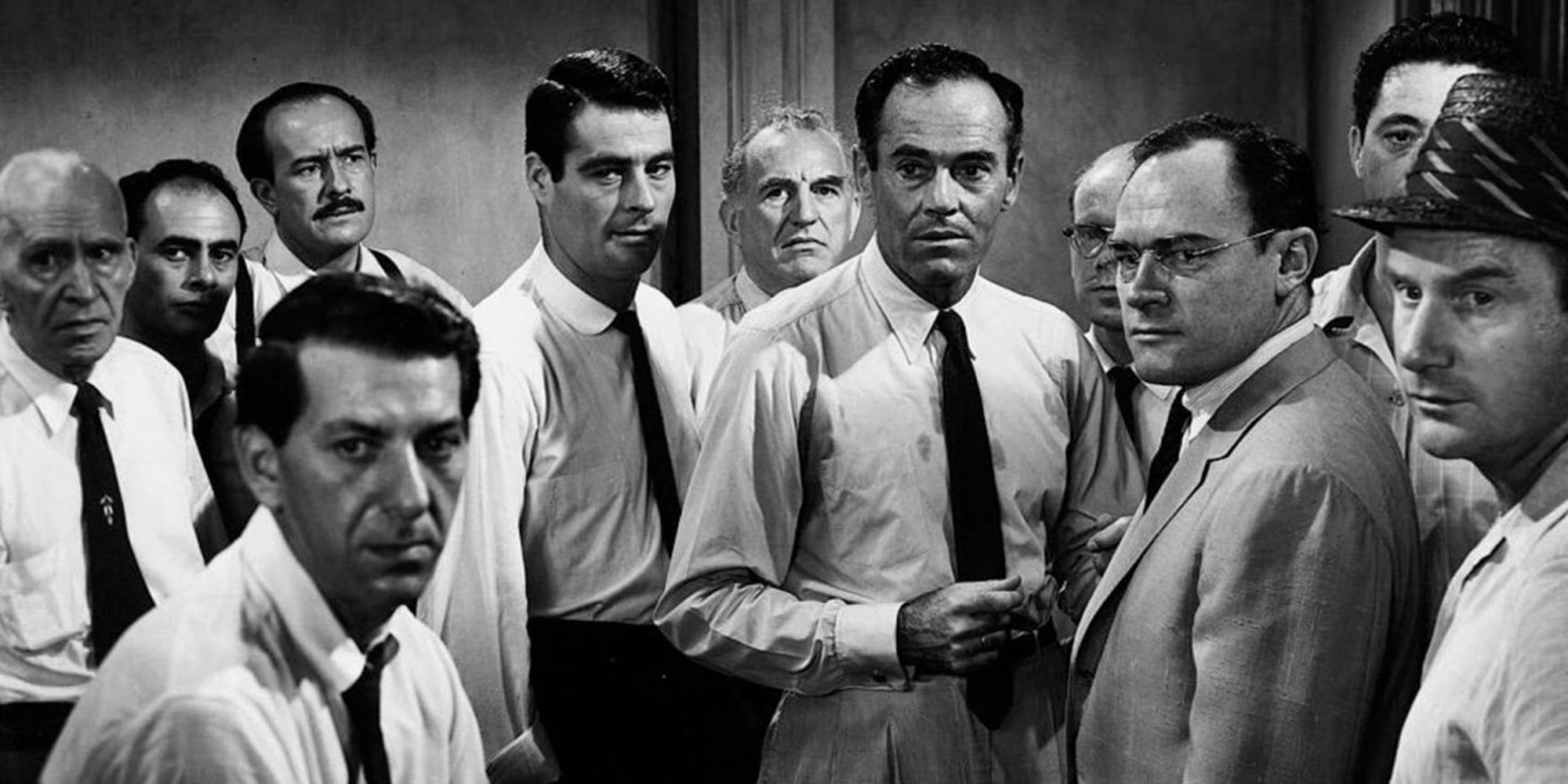Sidney Lumet was one of the preeminent New Hollywood directors, responsible for classics like 12 Angry Men, Serpico, and Dog Day Afternoon. He was trained during the golden age of television in the 1950s, which shaped his energetic, collaborative filmmaking style and his preference for realistic storytelling. His movies are usually character studies or psychological dramas, frequently exploring themes of family life and justice, often involving the legal system and the media. He was also infatuated with New York City, using it as the setting for most of his films.
Lumet delivered many gems across his five-decade career, and his 70s movies have aged remarkably well. He also wrote a popular book on filmmaking, Making Movies, which has served as a handy guide to countless directors since. "While the goal of all movies is to entertain [my work also] compels the spectator to examine one facet or another of his own conscience," Lumet once said of his approach to cinema. Fans on IMDb have embraced Lumet's movies, granting them high scores on the popular site and cementing him as a giant among cinematic auteurs.
10 'Long Day's Journey Into Night' (1962)
IMDb Score: 7.5/10
Long Day's Journey Into Night is Lumet's adaptation of Eugene O'Neill's eponymous Pulitzer Prize-winning play. The story unfolds over a single summer day as the Tyrone family gathers in their Connecticut home. Father James Tyrone (Ralph Richardson), a tightfisted actor, contends with his regrets, while his wife Mary (Katharine Hepburn) struggles with addiction and the haunting memories of the past. Their sons, Jamie (Jason Robards) and Edmund (Dean Stockwell), also seethe with resentment.
The original play is one of the most acclaimed of the 20th century, so there was a lot of pressure on Lumet to translate it successfully to the screen. He more than rises to the occasion, capturing the action with a lean, economical direction. He also sticks closely to the source material, making very few changes. Rather than cinematic tricks or technical wizardry, Lumet places the performances at the heart of the film. He gives the stars plenty of room to dig into their characters, especially Hepburn, who delivers one of her all-time best performances.
9 'Running on Empty' (1988)
IMDb Score: 7.6/10
In 1971, married couple Arthur (Judd Hirsch) and Annie Pope (Christine Lahti) blew up a building to protest the Vietnam War. However, they didn't realize there was a janitor in the building, and he was blinded and paralyzed by the blast. The Popes have been on the run from the FBI ever since, constantly changing their names and places of residence. However, their son Danny (River Phoenix) feels a strong desire to live his own life, which could cause the Popes' secrets to be revealed.
Running on Empty is a live-wire drama, in which the main characters try to lead a semi-normal life even as the threat of exposure and incarceration forever looms over them. The sweet romance between Danny and Lorna (Martha Plimpton), his music teacher's daughter, is a great foil for the tension that consumes Arthur and Annie's lives. Phoenix does a lot of heavy lifting and received a Best Supporting Actor Oscar nod for his efforts.
8 'The Pawnbroker' (1964)
IMDb Score: 7.7/10
Rod Steiger stars in this drama as Sol Nazerman, a Jewish pawnbroker in Harlem who survived the concentration camps but is now emotionally detached from the world around him. A criminal named Rodriguez (Brock Peters) uses the pawnshop as a front for his illegal activities, including being a pimp for a sex worker who is dating one of Nazerman's employees. Recalling the sexual abuse in the concentration camps, Nazerman ends his relationship with Rodriguez, a decision which soon makes him the target of harassment by Rodriguez's thugs.
The movie slowly reveals Nazerman's experiences in the camps via harrowing flashbacks. The Pawnbroker is intense and challenging, succeeding because of Steiger's rich, compelling performance. He received rave reviews, and the role catapulted him into the A-list. In addition, The Pawnbroker is also notable for being the first American film to depict the horrors of the concentration camps, paving the way for later projects like Holocaust and Schindler's List.
7 'The Verdict' (1982)
IMDb Score: 7.7/10
Paul Newman delivers one of his strongest late-career performances in this courtroom drama as Frank Galvin, a lawyer dealing with alcoholism and a string of career setbacks. Struggling to find work, he takes on a seemingly straightforward medical malpractice case involving a young woman left in a vegetative state due to a botched surgery. However, as Galvin researches the incident, he begins to suspect that it involves foul play and a far-reaching conspiracy.
Newman is joined by other wonderful performers like Charlotte Rampling, Jack Warden, and James Mason, and they appear to have pushed him to up his game. He takes what could have been a stock character and fleshes him out into a three-dimensional figure. In Newman's hands, Galvin is a broken character but somehow still a relatable one. Not to mention, Newman takes clear delight in delivering the fantastic dialogue written by David Mamet, and his enjoyment of the role is plain to see. The Verdict is a rewarding and electrifying courtroom drama, a celebration of the law that finds Lumet in complete command of his craft.
The Verdict
- Release Date
- December 8, 1982
- Cast
- Paul Newman , Charlotte Rampling , Jack Warden , James Mason , Milo O'Shea , Lindsay Crouse
- Runtime
- 129
6 'Serpico' (1973)
IMDb Score: 7.7/10
With Serpico, Lumet deftly combines a biopic with a crime film to create one of the most enduring cop dramas of the 1970s. Al Pacino delivers a powerhouse performance as Frank Serpico, an idealistic police officer who refuses to turn a blind eye to the pervasive graft and misconduct surrounding him. He becomes a whistleblower, exposing widespread corruption within the force before becoming a target of his erstwhile comrades.
Shot in a raw documentary style, Serpico may be Lumet's grittiest movie. It's also stylistically playful, opening with Serpico bleeding out after being shot and then going back in time to explain how he wound up in this situation. Thematically, the film is essentially Lumet's commentary on Watergate-era America, where the dominant mood was one of pessimism and disillusionment with authority. The result is an archetypal story of the lone crusader up against the rotten establishment, which has served as a blueprint for scores of lesser films made in the decades since.
Serpico
- Release Date
- 1973-12-5
- Cast
- Al Pacino , John Randolph , Biff McGuire
- Runtime
- 130
5 'The Hill' (1965)
IMDb Score: 7.9/10
The Hill takes place in a British military prison in North Africa during World War II. Allied soldiers who commit offenses like insubordination or theft are housed there and punished. They are overseen by the sadistic Staff Sergeant Williams (Ian Hendry), who subjects them to all kinds of harsh punishments, including forcing them to climb a man-made hill in the center of the camp. When one of the prisoners dies, a bitter conflict erupts between several camp officers and the inmates, led by former squadron sergeant major Joe Roberts (Sean Connery).
Lumet has said that the plot of The Hill was secondary to the character study, focusing on the psychology of the men in this brutal environment. The central theme is fear: how different people respond to it and what it can make some people do. The Hill is not one of Lumet's most enjoyable movies, but it's certainly powerful, sophisticated viewing.
The Hill
- Release Date
- June 17, 1965
- Cast
- Sean Connery , Harry Andrews , Ian Bannen , Alfred Lynch , Ossie Davis , Roy Kinnear
- Runtime
- 123
4 'Fail Safe' (1964)
IMDb Score: 8.0/10
Made in the wake of the Cuban Missile Crisis, this Cold War thriller tells the story of an accidental nuclear strike authorized by the United States against the Soviet Union. A bomber group is dispatched to Moscow with orders to raze the city to the ground. The story concerns the President (Henry Fonda) as his advisors desperately attempt to call off the bombers and avert an all-out nuclear war. It's basically the premise of Dr. Strangelove but played straight.
Fail Safe was a commercial failure, in part because Stanley Kubrick's film had beaten it to the punch and premiered several months earlier. Nevertheless, it received positive reviews and remains one of the more watchable entries in its subgenre. The most frightening thing about Fail Safe is that the events it depicts are all too plausible. The ideas it explores are still relevant in light of the continued nuclear saber-rattling that takes place today.
3 'Dog Day Afternoon' (1975)
IMDb Score: 8.0/10
Another crime drama based on real events, Dog Day Afternoon stars Al Pacino as Sonny Wortzik, a desperate and somewhat inept bank robber. Along with his partner, Sal (John Cazale), Sonny attempts to hold up a bank to finance a sex reassignment surgery for his transgender wife, Leon (Chris Sarandon). As the robbery goes awry, Sonny finds himself trapped in a standoff with the police. Reporters descend on the scene, quickly turning it into a media spectacle.
Like Serpico, Dog Day Afternoon is an anti-establishment film that questions authority. The movie critiques Wortzik and his motives but is also somewhat sympathetic to him. Rather than being the villain, he's a flawed and surprisingly complex antihero. The story also delves into issues of mass media, sensationalism, and the public's fascination with criminals, themes that would only rise in importance in the following years. Lumet walks a tightrope between social commentary, drama, and black comedy, somehow making it all look effortless.
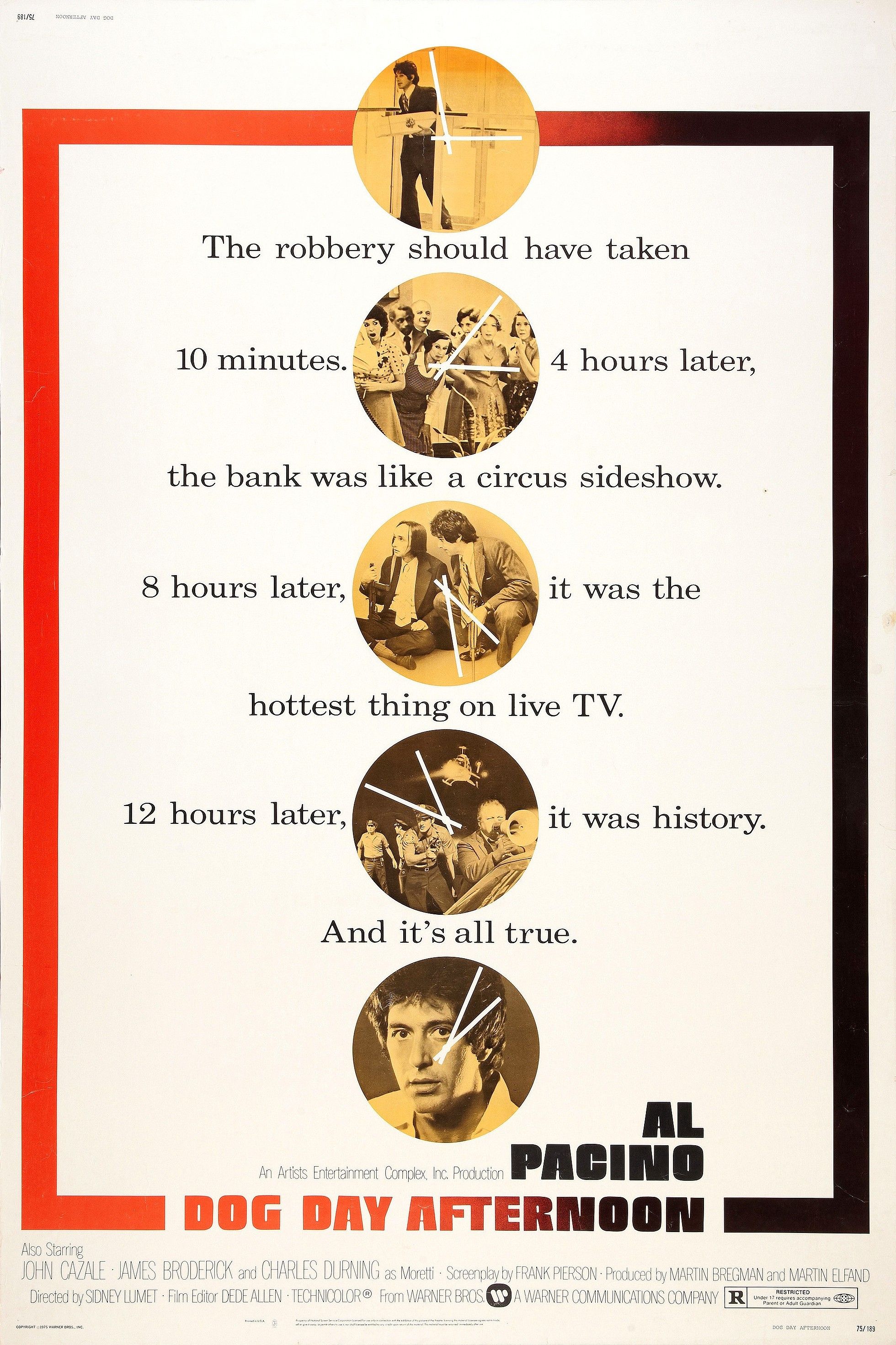
Dog Day Afternoon
- Release Date
- December 25, 1975
- Cast
- Al Pacino , John Cazale , Penelope Allen , Carol Kane
- Runtime
- 125 minutes
2 'Network' (1976)
IMDb Score: 8.1/10
"I'm as mad as hell, and I'm not going to take this anymore." Network is a satirical and prophetic exploration of the news media and its influence on society. It follows Howard Beale (Peter Finch), a veteran news anchor whose on-air breakdown leads to a boost in ratings. Instead of firing him, the network exploits Beale's instability and turns him into a sensationalist prophet, leading to a decline in journalistic integrity. Joining Finch is a bravura Faye Dunaway as Diana Christensen, a ruthless network executive who embraces the sensationalism for profit, and William Holden as Max Schumacher, a longtime friend of Beale caught in the moral quagmire of the media landscape.
Network is a scathing critique of the commodification of news, the pursuit of ratings at the expense of truth, and the dehumanizing impact of the media on both individuals and society. One of the best movies of 1976, Network was impressively ahead of its time, prefiguring the current fractured media environment by several decades. Not to mention, it's probably Lumet's best-written film, thanks to the incisive and endlessly quotable script by Paddy Chafesyky.
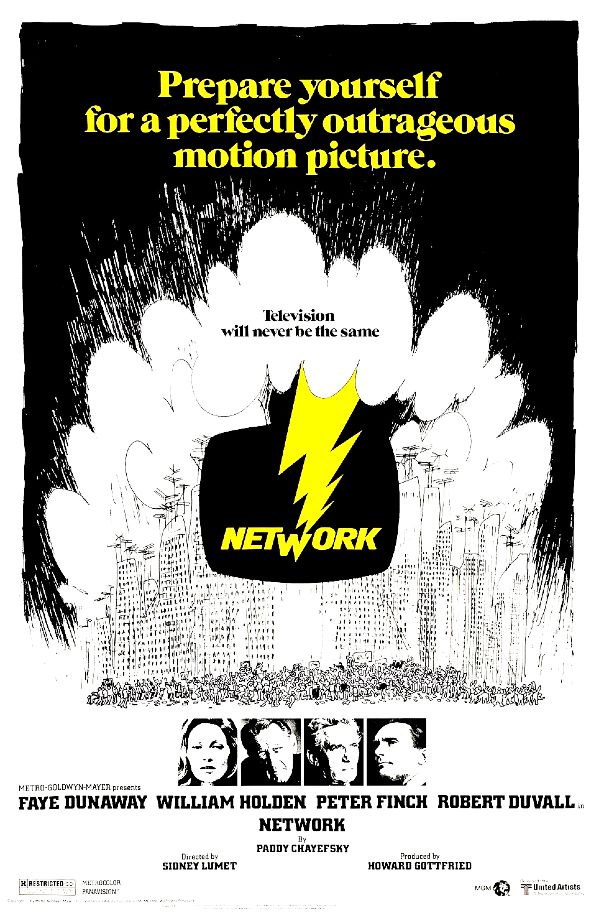
Network
- Release Date
- November 27, 1976
- Cast
- Faye Dunaway , William Holden , Peter Finch , Robert Duvall , Wesley Addy , Ned Beatty
- Runtime
- 121 minutes
1 '12 Angry Men' (1957)
IMDb Score: 9.0/10
12 Angry Men was Lumet's first feature, and it's a remarkable debut. Perhaps the defining cinematic courtroom drama, 12 Angry Men takes place entirely within the confines of a jury room. There, the jurors deliberate on a seemingly open-and-shut case of a young man (John Savoca) accused of murdering his father. However, it soon becomes clear that preconceived notions, biases, and personal prejudices cloud the judgment of some of these men. Henry Fonda delivers a standout performance as Juror #8, the lone juror who initially votes "not guilty" and insists on a thorough examination of the evidence.
The jurors represent a diverse cross-section of society: there's a European watchmaker, an indecisive advertising executive, a straight-talking house painter, a meek bank teller, and a methodical assistant high school football coach. Lumet conjurers up a tense and claustrophobic atmosphere, turning the jury room into a pressure cooker of clashing personalities and conflicting values. A pivotal work, 12 Angry Men is one of the most timeless movies of the 1950s and an always-relevant commentary on the American justice system.
12 Angry Men
- Release Date
- August 17, 1997
- Cast
- Courtney B. Vance , Ossie Davis , George C. Scott , Armin Mueller-Stahl , Dorian Harewood , James Gandolfini , Tony Danza , Jack Lemmon , Hume Cronyn
- Runtime
- 117

